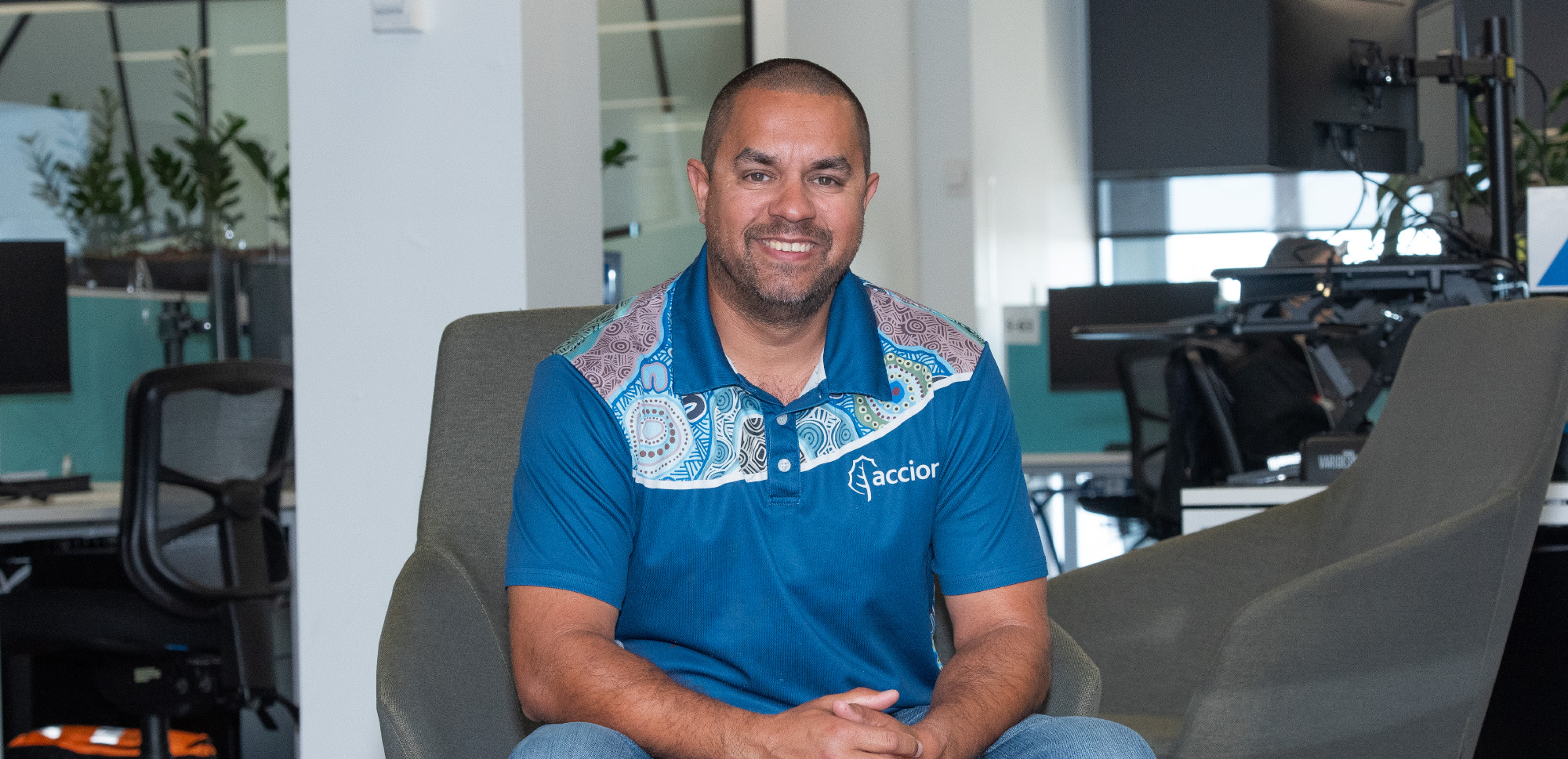For centuries in northeastern India, there’s been a tradition of crafting living bridges from the roots of trees like the rubber plant, weaving them across rivers. Robbie Lynch is somewhat of a “living bridge” himself in his homeland of Australia. Since joining ACCIONA almost two years ago, he has proudly become one of the visible faces of indigenous engagement in his country, representing the Wakka Wakka people, his Aboriginal Language Group (Mob).
In fact, as our interview kicks off, Robbie jokes about his prominent role at ACCIONA. “I went into the new head office and my head was on the TV everywhere we went. Like it was ridiculous. I thought he’d planned it or something,” he explains with his straightforward and down-to-earth style. In this article, you will discover more about the significance of his role, his life highlights, and how he enjoys pushing people out of their comfort zones to help them walk in others’ shoes.
The meaning of a life
In a small northern Australian town, a group of parents and children gather to share breakfast at a school. At first glance, it’s an ordinary scene—but there’s something deeper unfolding here: the first steps in a community’s renewal. These families are Indigenous Australians, living in an area long challenged by high crime rates and school dropout issues. For Robbie, this moment was transformative; it was one of the first times he witnessed the tangible impact of his work.
“We invited the whole families to come in and participate in a school program, which was breakfast before school… The education rates in the first five years went up 300%.”
“It was called the Good Start Breakfast program (…) What we did was we invited the whole families to come in and participate in a school program, which was breakfast before school. We gave the parents ownership of the program and so simple things like making breakfast, sitting there together and having a good start to the day. I guess when we first initially rolled that program out, it was, fingers crossed and hopefully we’re having a good impact here,” he recalls.
This initiative, carried out alongside the Australian Red Cross, had a measurable positive impact: “I can tell you, the education rates in the first five years went up 300%. And the crime in the community went down as well.” What drove him to get involved in that program? And what motivates his role at ACCIONA today? To understand, we need to look back at his early years.
A childhood between two worlds
“I was brought up on the non-Aboriginal side of my family by my grandmother. She was one of the first non-Aboriginal people to legally adopt a member of her family of Aboriginal heritage,” he explains at the start of our interview. “I guess late in primary school where I started to experience racism, I didn’t really have anybody to turn to, anybody to talk to, as I was the only Aboriginal person in our school and in our area,” he adds.
At the time, Robbie lived in Sunbury, “now in Melbourne terms is metropolitan, but it used to be a country town, it used to be very small.” Adolescence is challenging for everyone, but for him, it was doubly so. Still, he found a way to cope. “My escape was sport, so that was kind of my vehicle to kind of deal with stuff like that and process it. Obviously, those later years and having a bit of a successful career in sport, it was able to nullify that a bit, which helped me a lot. Later, in my early 20s, I realized that I’d been kind of venting through sport.”
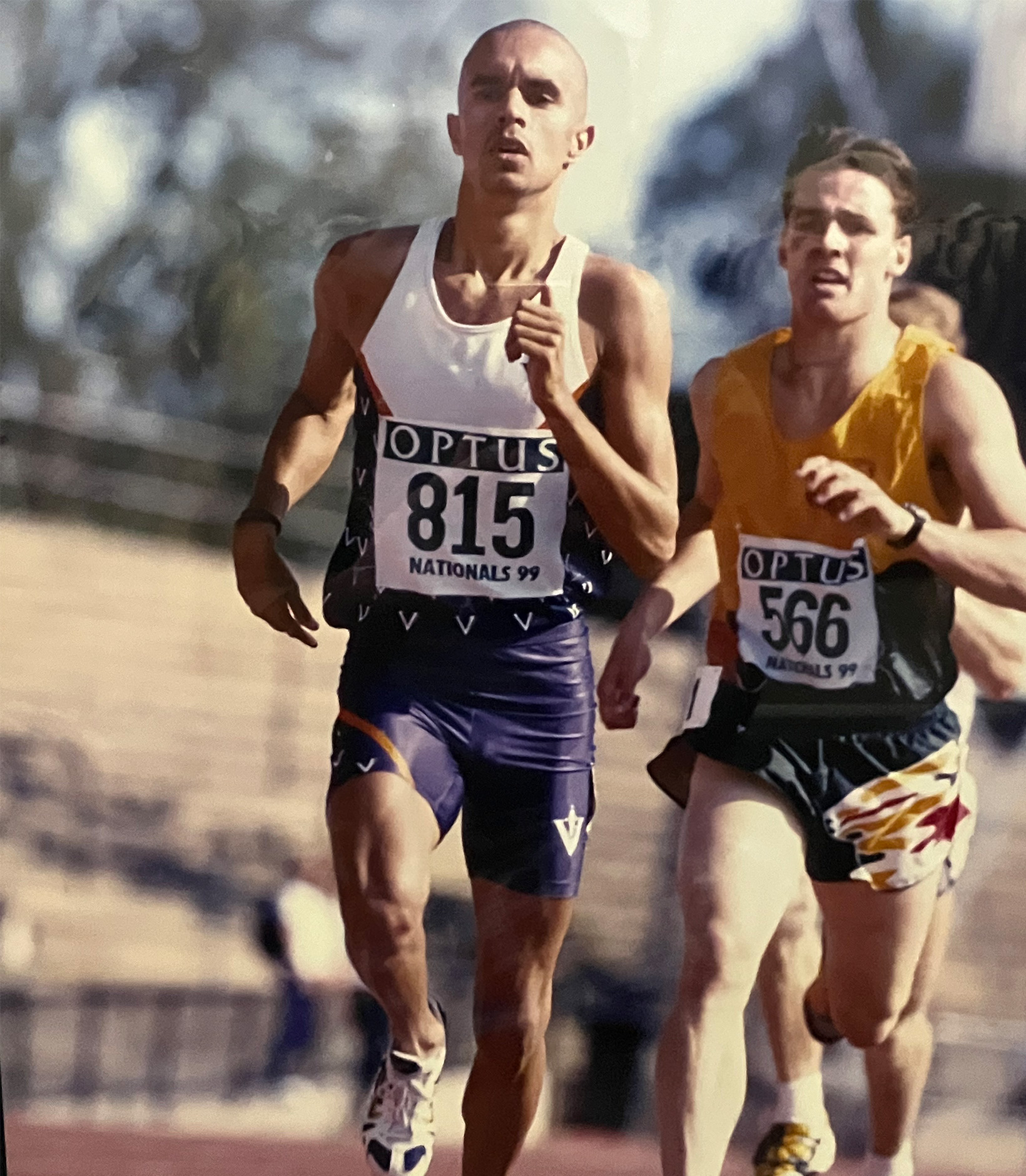
Personal challenges as part of a bigger picture
The experiences of his teenage years and using sports—specifically Australian rules football—as a space of respect and camaraderie showed him ways to overcome the challenges of diversity from a collective perspective. Perhaps there were others like him, feeling lost or facing difficulties, who could look to him as a bridge to new realities.
The passing of one of his Aboriginal cousins also helped him to grasp his family’s roots and history more deeply: “Everybody made the effort to get up to his funeral and it’s actually the first time we’ve had our entire family together, which is right across Australia.”
“I was able to get into an area that I had experience as a participant, but then learning the ropes about funding remote communities, how we can impact and bring people to participate in sport.”
In this way, he began to see Indigenous communities’ challenges in a much broader context, “One thing a lot of people don’t realize is Australia was the last country that was colonized. So, while it’s been 250 years, it’s also in its infancy too. There are things such as transgenerational and intergenerational trauma. These families that have been broken up.”
After high school, he began working for a sports company before moving to the Sport and Recreation department with the Northern Territory Government. “I was able to get into an area that I had experience as a participant, but then learning the ropes about funding remote communities, how we can impact and how we can bring people to participate in sport (…) Just seeing people come along and participate in something that I was putting together (…) I got a real hit out of it and really enjoyed it.”
Through initiatives like the school breakfast program, where he learned the potential of community empowerment, Robbie became involved in further projects. He had the chance to work with Ambulance Victoria, where he developed and implemented the Aboriginal Employment Strategy, and with the Corrections Victoria and Department of Justice, Community Safety. It was after this period of learning across different sectors that he finally took the leap into his current role.
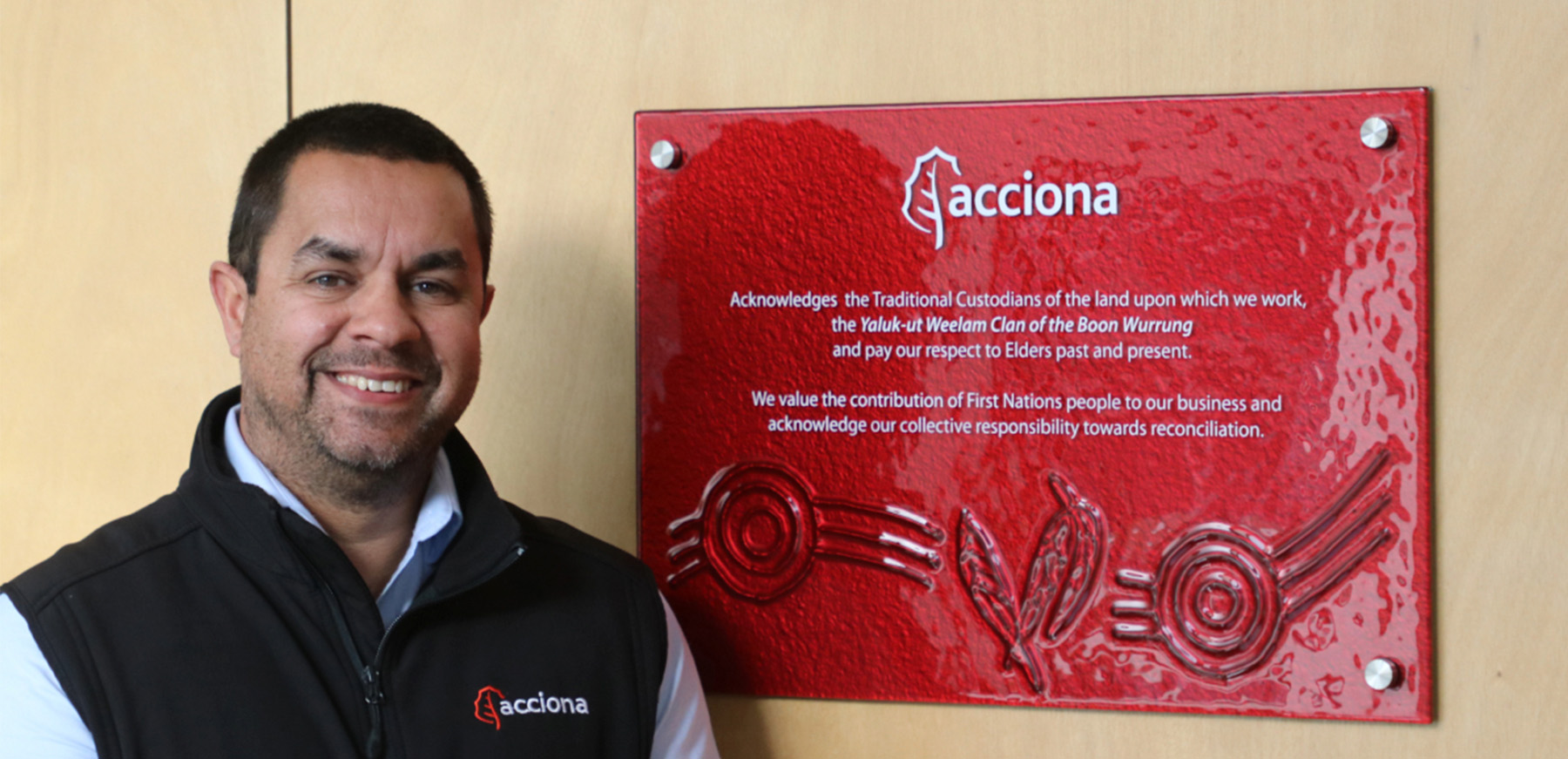
Open arms
Robbie recalls his first days at ACCIONA warmly, especially the figure of his Industry Capability and Inclusion (ICI) Manager. “He has been amazing in supporting me in my role, introducing me to corporate and worksite staff. He made me feel at home and like I belonged straight away which is so important in any role. He has really set me up with a great platform for success and now it’s over to me to make the role and the impact as great as I can.”
“Part of my work is about educating the non-Aboriginal workforce. How they can best support and engage Aboriginal people, businesses and communities? For example, learning about this country’s history. We never learned about that in school.”
One of Robbie’s initial responsibilities involved raising awareness about Aboriginal culture and customs among ACCIONA’s staff as part of a cultural journey program. “It’s about educating our non-Aboriginal workforce. How they can best support and engage Aboriginal people, businesses and communities? For example, learning about this country’s history. We never learned about that in school.”
One recent example of this outreach was a tour Robbie conducted across nine offices for National Reconciliation Week. He explained the significance of National Sorry Day, the landmark 1967 Referendum, and Mabo Day, which commemorates the High Court decision that recognized native title rights—momentous events for Aboriginal Australians.
To keep these activities engaging, he incorporates cultural elements in interactive ways, such as a cultural-themed quiz where participants mimic native animals like the kangaroo and the emu. “You go to a site, and you got 250 blue-collar workers there. And next thing you’re jumping around and you’re mimicking cultural animals and having fun. I think that’s the best thing that people are learning, people are having fun. They’re doing it with the cultural lens on.”
Robbie’s work of building bridges and fostering connections has also led him to join the First Nations Leadership Group created by ACCIONA, which includes First Nation representatives from across the company. This group provides a space to share challenges and concerns.
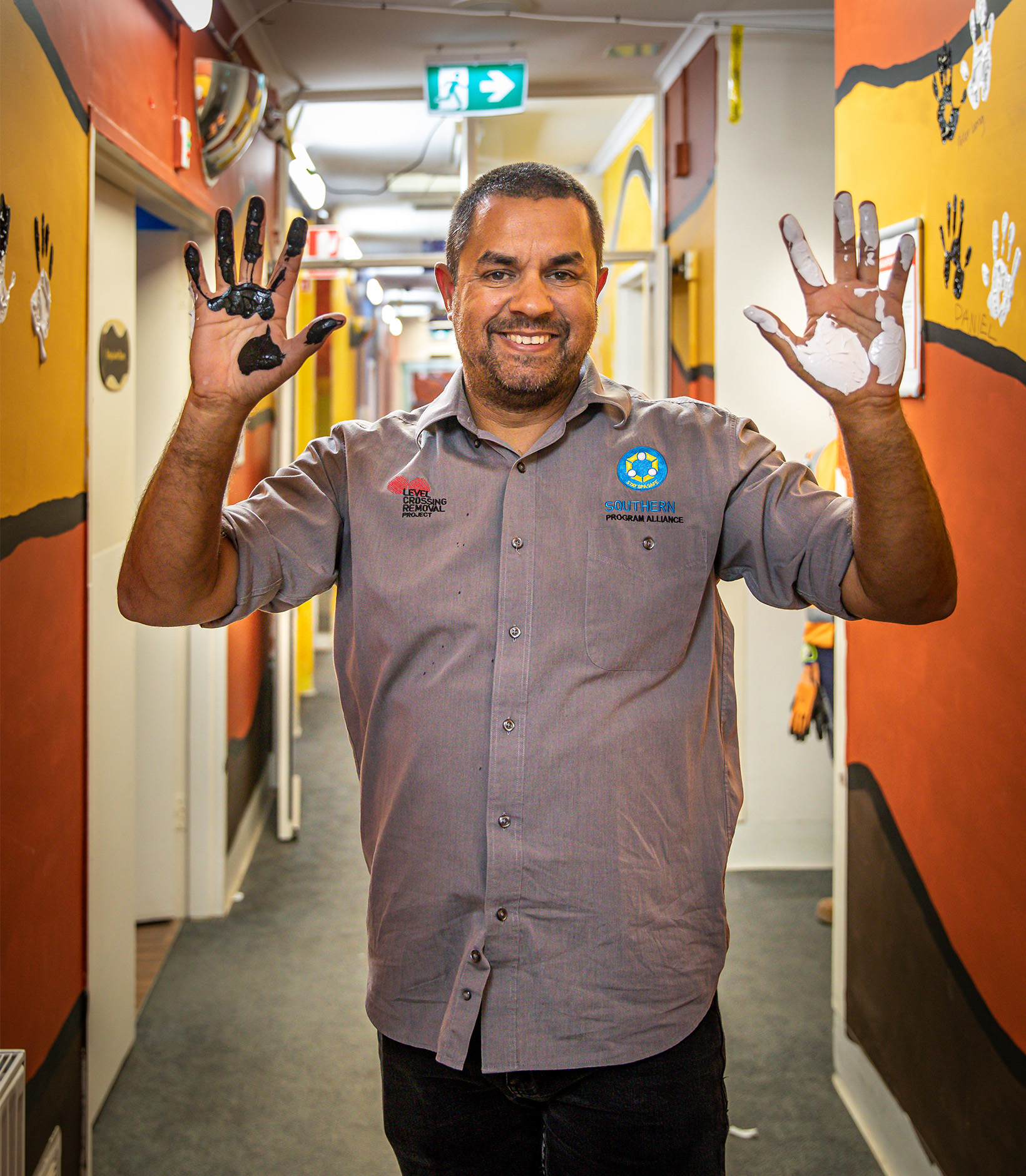
Culture into infrastructure
During his nearly two years with ACCIONA, one of the initiatives that best illustrates his contributions is the removal of level crossings as part of the Southern Program Alliance (SPA) joint venture. ACCIONA, aside from building new train stations, also constructs bike lanes and community areas in the process.
“So what we do is we put culture into infrastructure and utilize the surroundings in collaboration with the Traditional Owner Groups, but they’re there for everybody to learn.”
Each piece of infrastructure serves as a testament to cultural awareness and the era in which it was created. Thus, incorporating Aboriginal heritage—like that of the Bunurong people—into these projects is a key part of Robbie’s role. This approach was central to the work on the Edithvale, Chelsea, and Bonbeach station projects.
“We have very strong relationships with the Bunurong Traditional Owner Group. What we do is engage the Traditional Owners, and we look at how we can transfer culture into infrastructure. So how do you put a painting up in a train station? How do you put some cultural learnings in bus shelters, and using the shared foot path? There’s quite a lot of different cultural connections at each of the train stations that we’ve done.” Through these cultural initiatives, he reflects, infrastructure users gain a daily connection to the country’s heritage.
Another example is the meeting spaces where the community can gather for significant events or simply connect: “We have what’s called a yarning circle, where you sit around a circle, or a camp and you’ll talk. You’ll have days of celebrating, mourning, reflection. We created a yarning circle for the whole community use just off the shared user path as well, so the whole of that community can walk past and see. And what we have there is traditional flora and fauna, native plants that have been revegetated there.”
And he sums it up: “So what we do is we put culture into infrastructure and utilize the surroundings in collaboration with the Traditional Owner Groups, but they’re there for everybody to learn.”
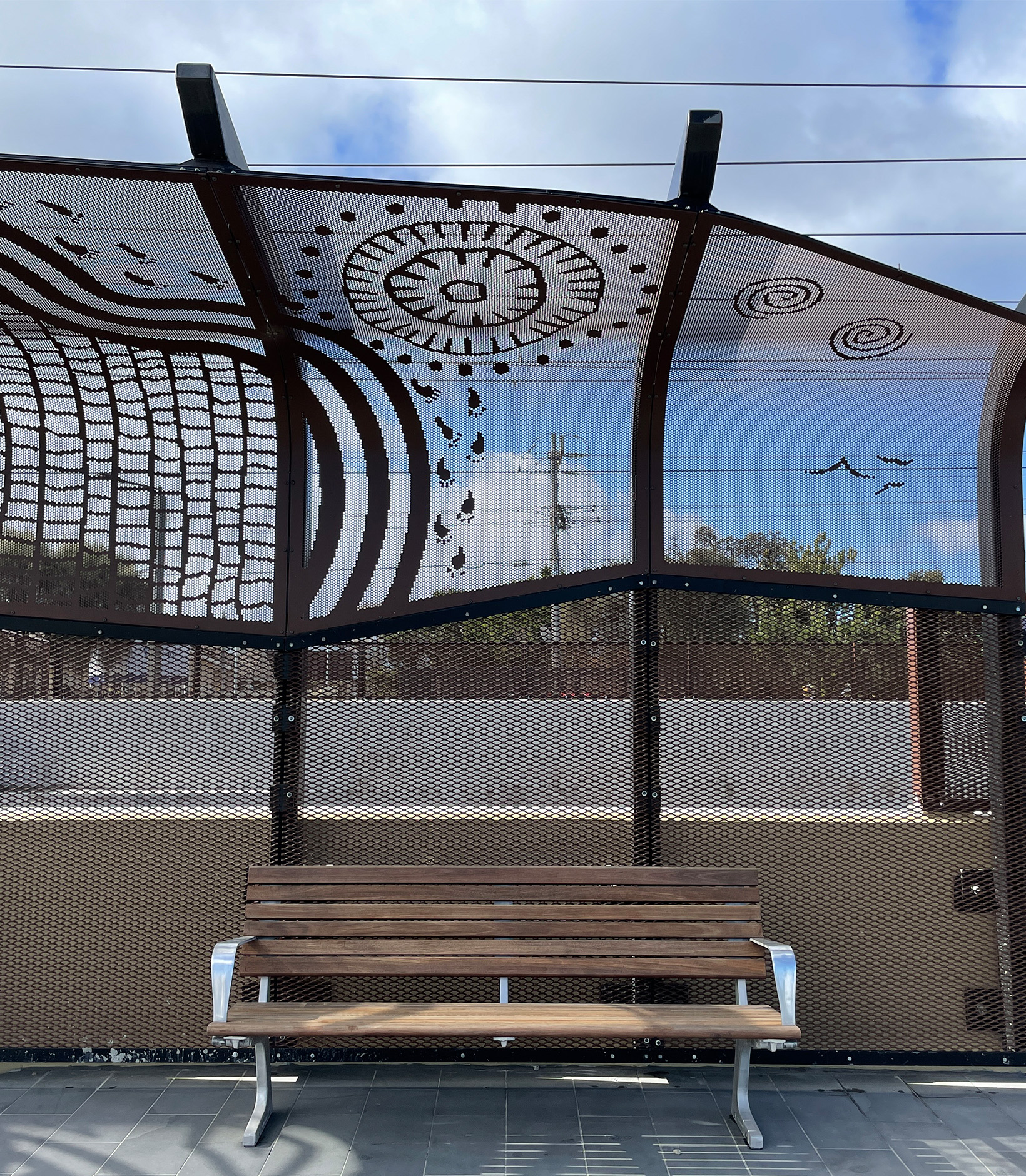
In the infrastructure field, another critical aspect of Robbie’s role is consulting with elders from each Indigenous Language Group to understand areas of cultural significance and identify any Aboriginal artifacts that may need preservation. His fieldwork parallels that of geospatial engineer Sushana Kharki, whom we recently interviewed, involving topographic maps and satellite imagery.
Occasionally, there are also chance discoveries where communication with different Aboriginal groups is crucial. “If they find ancient artifacts and burial sites, you have a stop work and what you do there is you connect with the Traditional Owner Groups, those Aboriginal and Torres Strait Islander land Councils, and they have processes that are put in place to see what they are. And if they are indeed Aboriginal artifacts or people’s remains, they will hold a ceremony where we repatriate them into a specific part of their language group.”
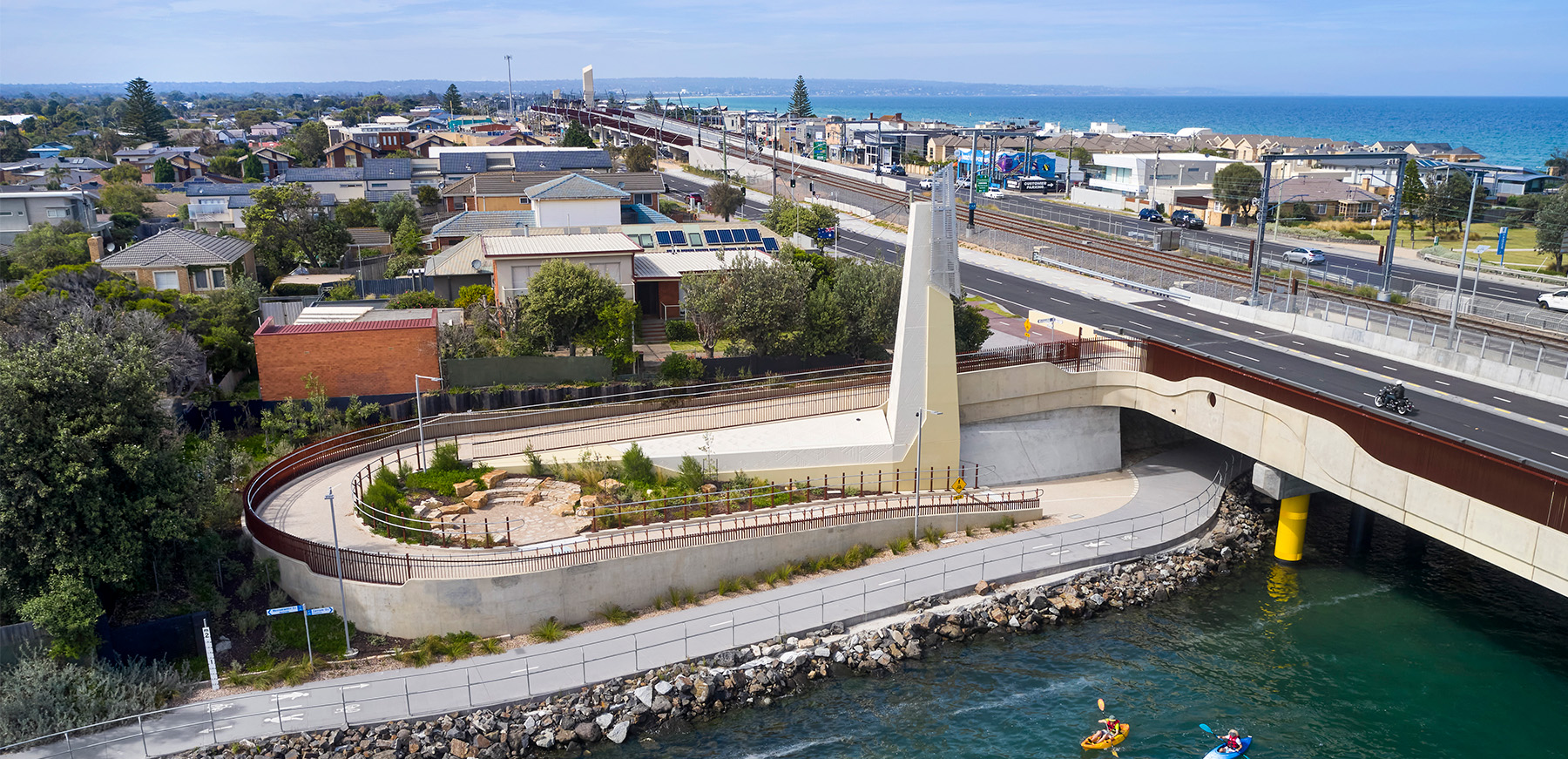
Helping Aboriginal businesses thrive
In Australia, infrastructure projects are legally required to include a set percentage of Aboriginal suppliers. Yet, as Robbie explains, ACCIONA’s positive impact goes well beyond these baseline requirements. He points to Monero Constructions, a small Aboriginal-owned business that has contributed to station platform construction in several key projects.
Beyond merely fulfilling a quota, ACCIONA supported Monero’s growth: “Monero came on board in its infancy and what we did as a business was sit down with them and look at how we could help grow that business. Look how we can increase their capabilities, increase their capacity. Help with their back office, payroll, everything and anything that we could possibly help with. How can we help this business grow? So, so we did that over a fair length of time, and I think this is a really good example of working collaboratively with local businesses.”
“Watching an Aboriginal business grow from starting out into something really big and special, and them employing other people as well, is an incredible experience.”
Monero Constructions has now grown to over 90 employees is one of the leading, 40% of which are Indigenous, and continues to work with ACCIONA on numerous projects. “Seeing the impact that employing an Aboriginal person has and watching an Aboriginal business grow from starting out into something really big and special, and them employing other people as well, is an incredible experience,” he reflects.
Leading by example
Robbie often emphasizes the importance of company-wide involvement. While his efforts in raising awareness among staff are crucial, executive support is equally vital. “When you have executives and managers that are within the business, that are passionate about that and support their workforce, it’s amazing what you can do and in particular in the Aboriginal Torres Strait Islander space.”
“When you see the leaders participate and have that presence there, it’s really powerful.”
As Robbie explains, having day-to-day support is one of the keys to the success of these initiatives. “I think that it’s great for me, but I think it’s great for our workforce too to see those senior people participate and have that presence there. When you do see those leaders there, you’re like, oh, you’re one of us too. So, I think that’s really powerful.”
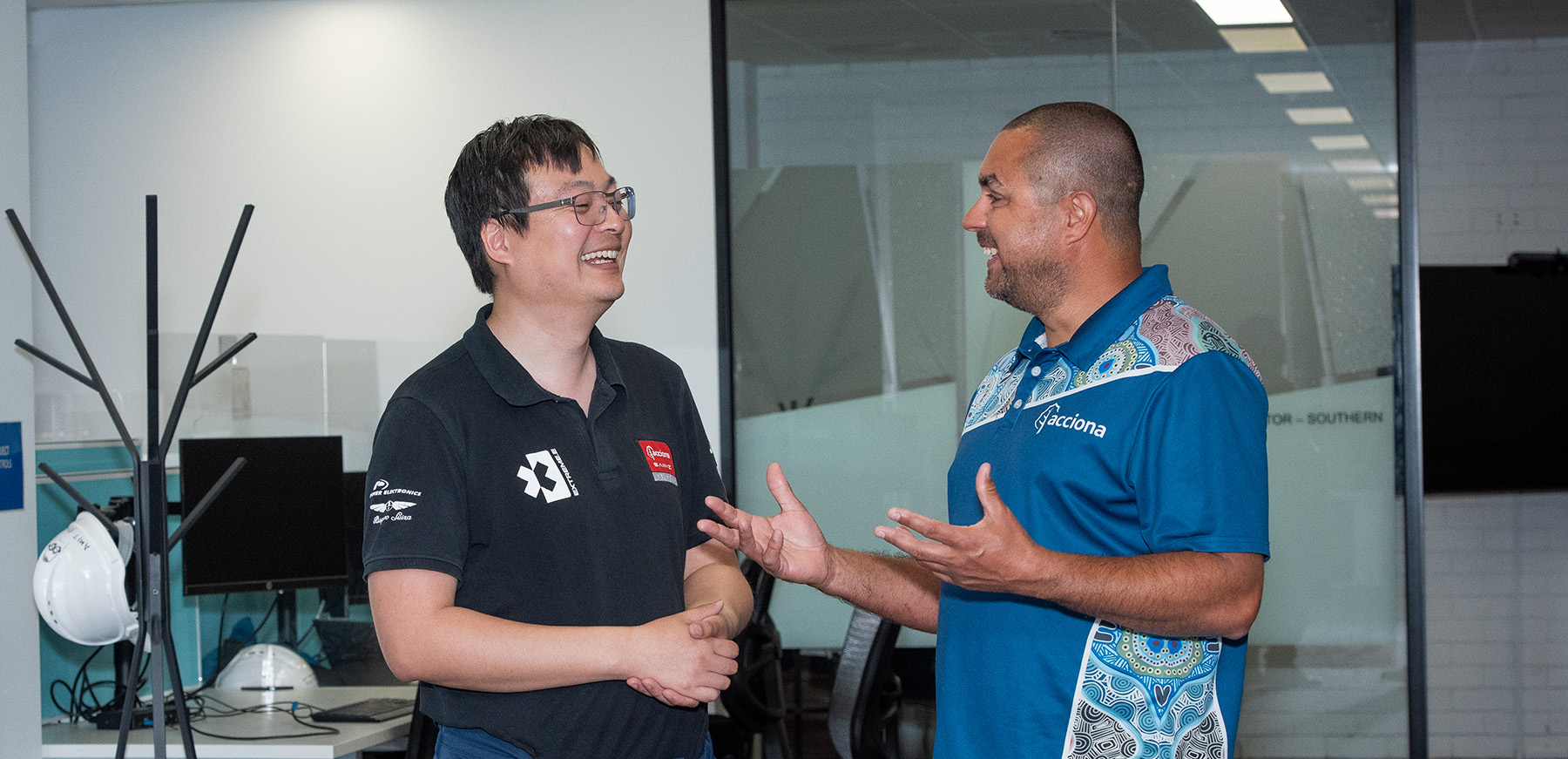
History is all of ours to learn and share
Throughout the interview, Robbie shared some of the valuable lessons he’s learned over the years. One is the importance of listening within an organization: “I think one of the keys that I’ve learned in my journey is: listen and hear what people are saying. Don’t listen to respond. I think sometimes people just want to be heard and I think when they have that opportunity, it opens up a lot more conversations.”
He also highlights the wealth of learning available through diversity and the preservation of cultural heritage. He sums it up with this call to action: “Like a set of rearview mirrors, to know where we are going, we need to know where we have been. Australia’s cultural history is all of ours to learn and share. So, to ensure that this country’s history continues to survive, you can be a part of making that happen. Let’s enjoy the journey and walk together.”
At ACCIONA we need the best professionals on our team, people who choose to invest their talent in generating a positive impact on the planet. Want to sign up for this commitment? See our job offers here


